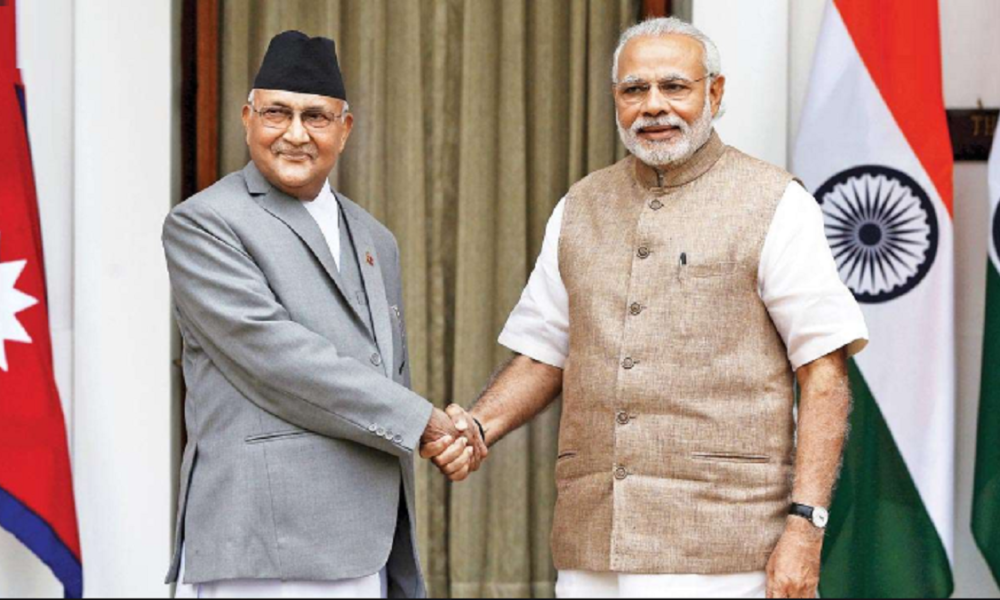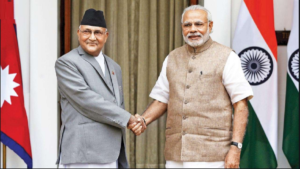There is something very immature about the way the K.P. Sharma Oli government in Nepal is going about its business with India. Making Indian women married to Nepalese citizens wait for seven years before they can get their citizenship; not allowing the repair-work of Gandak dam for the purpose of preventing floods in Bihar; not allowing farmers to till their land along the border; resorting to firing; playing anti India propaganda songs along the border; manufacturing a controversy over Kalapani and Lipulekh and using that to stoke nationalist and antiIndia sentiments—the list is long. It’s as if Nepal’s “communist” government is taking a leaf out of the Chinese communist playbook, by designating India as an “enemy”. This serves no one’s purpose and certainly not Nepal’s at a time when its trade, cultural and social ties with India are too deep to be substituted with links to China. India still accounts for 2/3 of Nepal’s total trade. Remittances from abroad accounted for around 27% of Nepal’s GDP in 2019, and of this, a significant portion came from the 3-4 million (numbers keep varying) Nepalese citizens working in India. India still is the fuel supplier to Nepal. India and Nepal also have a civilisational connect, because of both Hinduism and Buddhism.
Ideally, their bond should not have frayed. But then there is China, which is focused on bringing India’s Himalayan neighbour under its control to serve its own anti-India strategic purpose, as well as to root out Tibetan dissenters from Nepalese soil. China has substantially ramped up investments in Nepal, so much so that since 2014 it has overtaken India in its share of FDI. The Chinese now claim that they are the source of 90% of Nepal’s FDI. Chinese presence in Nepal is more than apparent in sectors such as infrastructure, energy and telecom. There are reports that China has extended its influence from government to intelligentsia and the media. Nepal’s military ties with China are growing. Nepal, as part of China’s Belt and Road Initiative, is getting road networks and a rail link connecting Kathmandu—and possibly Pokhara and Lord Buddha’s birthplace Lumbini—with Tibet’s Gyiron. It was in 2011 that China pledged to develop Lumbini with an investment of $3 billion and that work is underway. The Nepalese population is being taught Mandarin. In short, China seems to have brought this landlocked nation in its grip both with its money power and the promise to give it an alternate route to the world, thus cutting down its dependence on India. But Kathmandu needs to take a look at Beijing’s track record and realise how China’s “debt-trap diplomacy” is bankrupting country after country, and turning them into Chinese colonies—of which Pakistan is a prime example. If Nepal gives a free pass to China, sooner or later its economy will go belly up, its jobs will be lost to Chinese settlers, and chunks of its territory will turn Chinese—just the way its Rui village did. Whatever may be Oli’s political compulsions—for which he needs to stoke nationalist sentiments—whatever may be Nepal Maoists’ political and ideological inclinations, they should not become a Chinese pawn and make IndiaNepal relations fall prey to their personal ambitions. It is not in Nepal’s interest. To keep India-Nepal border volatile is part of China’s overall aim to keep India’s whole northern border burning and destabilized. In fact, even India needs to listen to Nepal’s concerns and treat it with the respect that a sovereign nation deserves. Strong arm tactics like the unofficial blockading of fuel movement into Nepal are best avoided. These two nations have a millennial old relationship. China cannot be allowed to destroy that.







